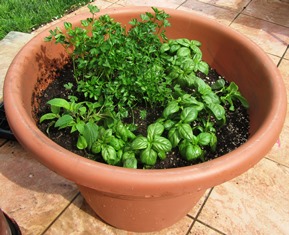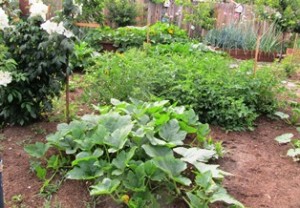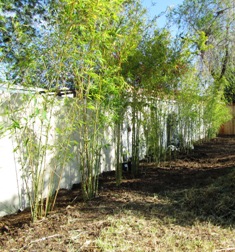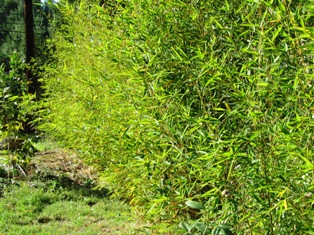Twelve Reasons to Grow Your Own Food
Doctors tell us we should eat fruits and vegetables for our health. Fresh is best. For more reasons to grow your own food, read on.
1. Enjoy Superior Flavor and Higher Nutritional Value
The flavor of produce that travels from your edible garden to your plate is far superior to that of store-bought varieties. Even before fresh produce reaches the bins of your local store, the fruits and vegetables must be picked, sorted, crated, and transported from suppliers t0 supermarkets and grocery stores. Time spent in transporting and storage can diminish food flavors and nutrient values.
2. Keep It Pesticide-Free
Go organic. Choose alternative methods (companion planting and organic sprays, for example) to treat garden pests and plant diseases. Organic farming starts with nourishing the soil, which in turn, nourishes the plants that nourishes a healthy body. Organically grown fruits and vegetables picked fresh, immediately prepared, and served are nutritionally superior than their commercially grown and stored counterparts.
3. Safeguard Your Health
Avoid the cancer-causing agents and toxic chemicals in pesticides that are commonly used on many commercially grown food products.
4. Cultivate Plant Diversity; Preserve History
Grow varieties of the vegetables and fruits you love. Or, choose cultivars that might have grown in your grandmother’s garden–a nod to preserving history. Or, plant varieties that have fallen out of favor, are unusual, or are even rare.
5. Lower Your Food Bill
Grow your own edibles and preserve them for later consumption (like freezing spring peas for a fall or winter meal). Preserving the bounty by drying or freezing or canning can reduce your grocery bills. Another cost and time saver is to grow hard-to-find varieties of heirloom herbs, vegetables, or fruits instead of tracking down sources for those items.
6. Expand Your Knowledge of Plants
Understanding the seed-to-harvest cycle in nature fosters deep appreciation for ecology and the environment and contributes to your knowledge about various plants’ needs for nutrients, water, light, and temperature. You also learn about treatment options for garden-variety pests and plant diseases. This wealth of information can be shared with younger generations who will inherit the responsibility of caring for the planet.
7. Get Exercise
You can still work out, albeit in the garden in the fresh air rather than in an indoors gym. Think about all the exercise you’ll get digging, planting, shoveling, watering, weeding, and composting. Gardening provides plenty of solid exercise and rejuvenates a weary spirit.
8. Reduce Your Stress
Time spent in a garden is restorative: it nourishes your spirit and reduces stress levels. In fact, just a few moments of deep breathing and thinking about birdsong, sunshine, fresh air, and healthy plants all around you–nature in all its splendor–can generate a positive mental attitude.
9. Alleviate Concerns about Food Safety and Quality
You know the quality of the food you bring from your edible garden to the table. You want the superior freshness, flavor, and food quality for your loved ones. The chances for food-borne illnesses of the kind that strike Americans every year and are often investigated by the Centers for Disease Control (CDC) are vastly diminished when you grow organic edibles and eat them as fresh as possible.
10. Preserve Our Planet’s Diversity
Choose seeds that are open-pollinated, non-GMO (genetically modified organism; the result of scientists engineering or modifying the genetic material of food plants). It may come as no surprise that the health of our nation has declined with the demise of small family farms even as there’s been a rise in the number of supermarkets and expansion of modern agribusiness. It’s no wonder people everywhere are getting behind buy-local, keep-it-local movements; participating in farmers’ markets, and engaging in urban homesteading where self-reliance is paramount.
11. Earn Extra Money
Selling your home-grown produce to others in your community means you can make possible the goodness of organic produce to others while earning a little money (hint: buy more seeds or otherwise reinvest in your garden).
12. Feel Good about Donating Excess Produce to a Food Bank
Your local food bank or (sometimes churches, too) will distribute donated produce to needy families. Let it be a source of joy for you that your gardening efforts have literally put food in the mouths of those in less fortune life circumstances.
Bamboo Transforms Stark into Lush in No Time
New to the neighborhood and homesteading, we were offered a patch of clumping bamboo that was growing on the land behind us when we first moved to the Henny Penny Farmette. We worried as many do about the spreading habit of bamboo. The last thing we wanted were neighbors complaining that it had sprouted onto their property.
Back then rotting fences lined the boundaries of our land. The house, too, was in decrepit condition, but Carlos and I saw the potential of the property. We also liked the idea of natural fences or at least plants to soften the stark look of all those boards. Bamboo, we reasoned, made good sense: it was drought tolerant, easy to care for, and quick growing. It could turn a stark, ugly fence into a lush privacy screen in no time.
The vibrant green color turns to a golden amber in the fall and the plant (related to grass) moves gracefully in the wind. The plants were mainly clumping types of bamboo so they were not as likely to spread like thistle in the wind. When we were at the local DIY store, we checked the price of bamboo in pots and quickly realized that the gift we were to receive was worth several thousand dollars.
With shovels in hand, Carlos and a worker began digging along one long fence line on our property. After the planting holes were prepared, he and the worker used the wheel barrow to transfer the bamboo from the back property to ours. The two men planted and deeply watered the bamboo.
Winter rains in 2011 helped the bamboo take hold. It grew well the first year with a little extra watering over the summer. The next rainy season again fostered new growth. Now we have a verdant green fence line of thriving bamboo.
 Facebook
Facebook Goodreads
Goodreads LinkedIn
LinkedIn Meera Lester
Meera Lester Twitter
Twitter








